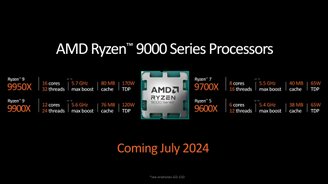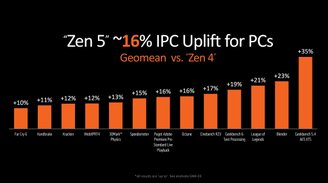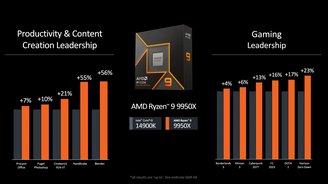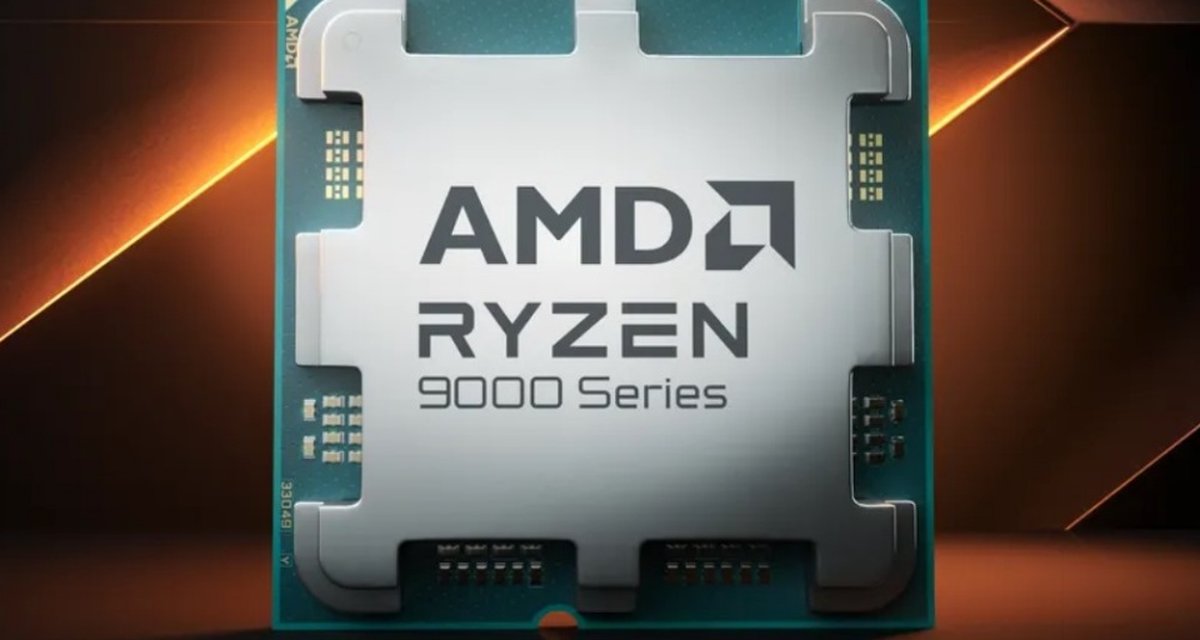Sunday night (02), AMD opened Computex 2024 by announcing its new Ryzen 9000 desktop processors with Zen 5 architecture.. The new chips, codenamed Granite Ridge, feature a series of improvements over the previous generation. AMD noted a 16% increase in IPC (instructions per cycle) compared to the Zen 4 chips.
The Ryzen 9000 is the successor to the Ryzen 7000 for Socket AM5, AMD's latest desktop platform. The AM5 was launched in 2022, when AMD promised support until 2025. At yesterday's event, the company stated that this support will be extended until at least 2027.
As usual, AMD announced the main models of the new series of chips with the following. All models feature the same number of cores and number of threads as their predecessors, in addition to the same amount of cache memory.

However, three of the processors have a much lower TDP than their previous generation counterparts. The Ryzen 9 9900X, Ryzen 7 9700X, and Ryzen 5 9600X get a TDP reduction of 50W for the former, and 40W for the latter two. This means that the new chips are easier to cool and should consume less power.

Zen architecture 5
In addition to a 16% increase in IPC, the new Zen 5 architecture offers a series of advantages over Zen 4. The Ryzen 9000 is manufactured using TSMC 4nm lithography, which means greater power efficiency and less heat generation.
The new line of chips also provides up to twice the data bandwidth between the L2 and L1 cache and between the L1 and the floating point unit, up to twice the bandwidth for front-end instructions, and up to twice the performance on AI-based tasks and AVX instructions. -512.

AMD also announced two new chipsets (X870 and X870E), which provide compatibility with USB 4.0 and PCIe Gen 5 standards for GPUs and SSDs. These motherboards will also support faster memory.

“Coffee trailblazer. Social media ninja. Unapologetic web guru. Friendly music fan. Alcohol fanatic.”

